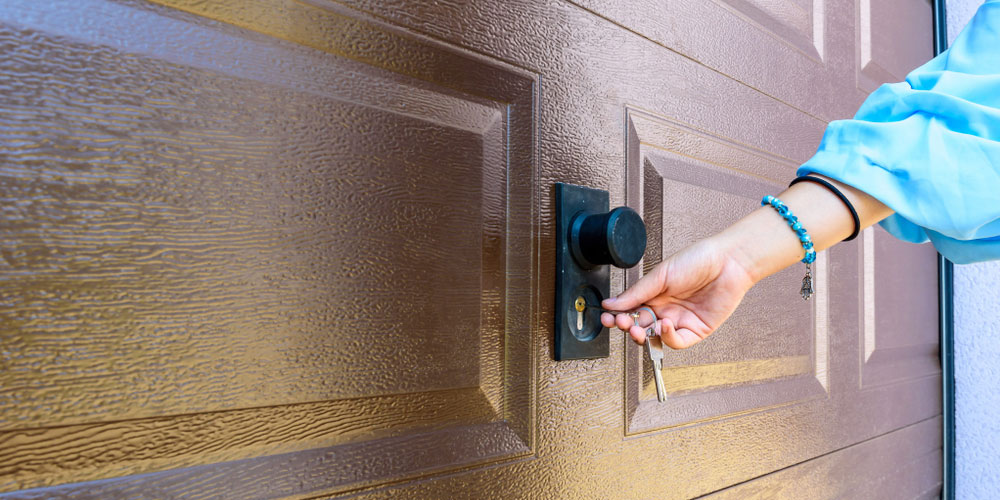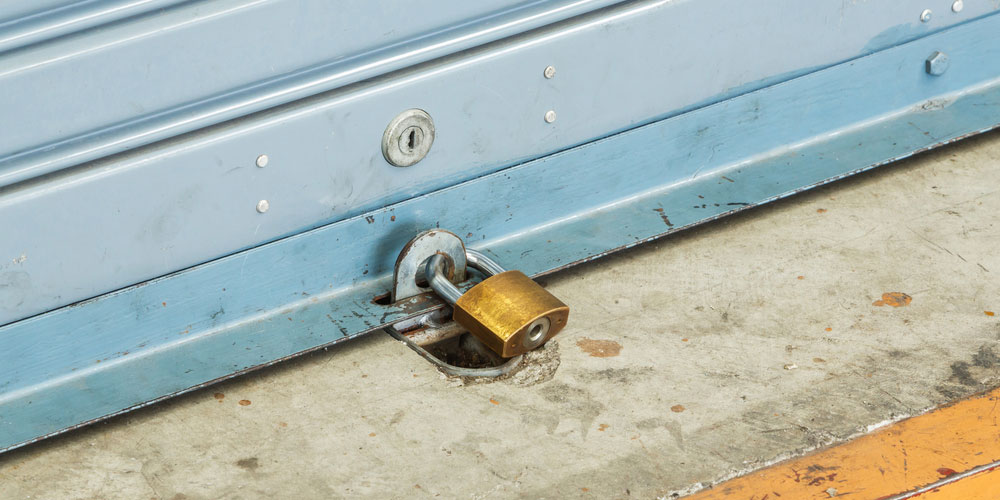Lock Blog
A resource for consumers, locksmiths, and security professionals
A resource for consumers, locksmiths, and security professionals

For the best garage door lock replacement, you need to know a little bit more about the device you are working with. After you know what type of garage door lock you are replacing, there is still the matter of why it needs to be replaced.
Whenever you are changing locks, it is always best to clarify a bit more about your particular circumstances before buying parts or removing anything. If you need any help with your garage door lock replacement, be sure to check if United Locksmith services your area.
What you need to know before garage door lock replacement:
All you need for garage door lock replacement to be possible is access to the set screws for the lock hardware. Most often, these are located on the interior side of the garage door, requiring entry into the structure before garage door lock replacement can commence.
The cost of changing locks on your garage begins with the cost of your new hardware. Lock change services start at $35 plus the service call fee ($15). Additional services may be required if the garage door cannot be opened, such as lockout services.
If you are using your automatic garage door frequently, using a lock may be inconvenient. However, it is still recommended to install a garage door lock. The garage can be secured during vacations and other instances when you are away from home for prolonged periods.
A garage door with a lock is ideal. However, if your perimeter security, such as walls or gates, obscures and creates an additional barrier, you can get away without a garage door. Attached garages should use locks to prevent easier access into the home.
Most garage door locks are not high security, meaning they do not have drill, cutting, or picking protection. With garage door lock replacement, you can potentially increase the security of your garage door lock or use additional locks to provide greater security.
The first step in garage door lock replacement is determining what type of hardware you are changing. There are several different types of garage door locks. Each type has variations within the general classification. Before garage door lock replacement, classify your type of lock.
A garage door T-handle is shaped like a “T” with a keyed cylinder in the center on the outside of the door. The inside of the garage door will usually have a second T-handle or a lever with tensioned cables attached to latches on either side of the door.
For garage door T-handle replacement, removal will likely begin from inside the garage. Often you will remove the set screws on the interior handle side and pull the exterior handle loose. If the set screws are visible from the outside, those can be removed first.
If you are locked out of your garage, it may not be possible to change the lock until you regain access. The inevitable garage door T-handle replacement is best done with two people so the handle set can be held together from both sides as it is fastened.
Replacement Tips:
A rim lock on a garage door is going to have a lock cylinder visible from outside the garage and the lock body on the inside. The lock cylinder’s set screws are found on the thumbturn and hardware in the garage’s interior. You must find the set screws to begin garage door lock replacement.
In many cases, you will not need to fully replace your rim lock. If you only have to perform door lock cylinder replacement, you can hold onto your rim latch lock body and avoid redrilling a different set screw configuration. Just be sure to get a lock cylinder that will fit the current rim latch.
It is also to segway into garage door T-handle replacement, changing the rim lock hardware out for the handle setup. This can be helpful if there is no handle on the door, and opening the garage door after unlocking is not straightforward.
Replacement Tips:

A padlock is commonly found on the outside of the garage door at the bottom or on the side. The padlock will fasten on a hasp with a bolt that extends into the ground or the sidewall of the garage. With the hasp working in tandem with the padlock, it is important to match the best padlock with the best hasp.
Garage door lock replacement for padlocks is very simple. Remove the old padlock. Put the new padlock on. Change the hasp if necessary. But if the padlock won’t open, you may need help. The tools used to remove a broken padlock may be locked in your garage.
Most stuck padlocks can easily be removed via bolt cutters. High-security padlocks may require something like an angle grinder to cut through the shackle. Because you are committed to garage door lock replacement, the padlock can be broken open.
Replacement Tips:
The main causes of a garage door lock replacement are changing access, replacing damaged locks, and upgrading security. The reason for your garage door lock replacement is going to affect how you go about it. Decide what you want from your lock, and then replace it.
There are several times in life you will need to change locks because access requirements have changed. This means that individuals who have had keys to your garage have had that access revoked. In these cases, you may be able to rekey locks instead of changing locks.
Not every type of garage door lock is rekeyable. A rim latch cylinder will be rekeyable, and any padlock with a removable core. Garage door T-handle replacement is the only option for that style of lock because the core cannot be removed and reinstalled.
During the rekeying process, you may be able to add your garage door to your group of keyed alike door locks, provided they use the same keyway. If they do not use the same keyway, consider garage door lock replacement that will remedy this.
Key Takeaways:
A damaged garage door lock can result in diminished functionality or complete loss of functionality. When it comes to common door lock problems, garage doors are not too different from any other door. Similarly, the problem you are experiencing may not be the result of a broken door lock.
Unlocking and locking unreliably can only be solved by garage door lock replacement if the lock is the issue. You could have a problem with your garage door, blocked tracks, misalignment, etc. The lock assembly might also be malfunctioning, meaning more than just the lock hardware needs to be replaced.
A bent catch or strike plate can result in a stuck door latch sensation. If your T-handle uses a cable system, a broken or loose cable can lead to the door handle turning without opening. Without knowing the damage level, you cannot predict the extent of your garage door lock replacement.
Key Takeaways:
What you are storing in a garage directly correlates to the level of security you need. Are you protecting a classic car? Is your motorcycle stored without being anchored to the ground? Do you have a locked toolbox filled with expensive equipment?
You can improve your motorcycle security, protect your tools, and deter car thieves just with garage door lock replacement. Obviously, it pays to use a variety of security measures, but it all starts with your locks. Everything you do can be undermined if you use low-quality locks.
You might not have to worry about criminal lock picking, but cutting and other forms of destructive entry are very commonly used on garage door locks. Your garage door lock replacement should have drill protection and hardened steel to resist bolt cutter attacks.
Key Takeaways:
Identify which type of garage door lock you are using. Determine the reason you want garage door lock replacement. By answering those two questions, you will better understand the options available to you. But if you have any questions, leave them down in the comments below.
If your garage is not currently using a lock, be sure to look into lock installation services. For everything else, there is garage door lock replacement. If you are looking for assistance, no matter what type of garage door lock replacement you need, United Locksmith has you covered.
Category: Lock Types, Residential, Safety & Security